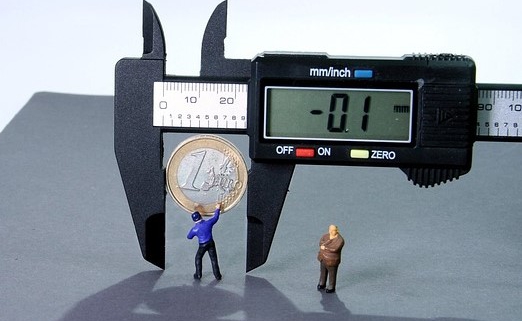About “Reactive Devaluation”: The Invisible Barrier in Negotiations
Have you ever found yourself in a negotiation, presented with an offer that (later) objectively seems fair, but something about it just doesn’t sit right with you? You can’t quite put your finger on it, but you’re inclined to reject the offer simply -because it came from the other side. If this sounds familiar, you’ve likely experienced a psychological phenomenon known as “Reactive Devaluation” which I learned about first time during my MIT Sloan negotiation course.
Reactive Devaluation is like the invisible “Elephant in the Room” of negotiations. It’s a cognitive bias that causes us to devalue proposals, not based on their actual merit, but just because they come -from someone we perceive as an adversary. It’s like receiving a beautifully wrapped gift, but because it’s from your annoying neighbour, you’re immediately convinced it must be a box of crap..
Understanding Reactive Devaluation:
Let’s take a real-world example. Imagine you’re negotiating a business deal. Your counterpart, who you’ve had some disagreements with in the past, makes a proposal. The proposal is objectively fair, and under normal circumstances, you would accept it. However, because of your past experiences and the fact that the proposal comes from them, you automatically -devalue it. You’re more likely to reject it or demand more, NOT because of the proposal’s content, but because of -who it’s coming from.
This, in essence, is Reactive Devaluation at play.
Now, you might be thinking, “Well, that’s just being cautious, right?” Not quite.
Reactive Devaluation can lead straight to missed opportunities and prolong conflicts, even when a mutually beneficial resolution is within reach. It’s like refusing to take a lifeboat from a sinking ship because you don’t like the person offering it.
Now that we’ve identified the invisible Elephant in the Room, let’s discuss how we can guide it towards the exit. Overcoming Reactive Devaluation isn’t about winning or losing; it’s about ensuring that the negotiation process is fair and productive for all parties involved. Here are some strategies to help you navigate this tricky terrain:
- Awareness is Key: The first step in overcoming Reactive Devaluation is recognizing it. Being aware of this bias can help you question your initial reactions to proposals and evaluate them more objectively. It’s like having a mental referee who blows the whistle when your biases start to play foul.
- Emphasize Common Goals: Framing the negotiation as a joint problem-solving process can help reduce the perception of the other party as an adversary. It’s like turning the negotiation table into a team huddle, where everyone is working towards a common goal.
- Use Objective Criteria: Basing your proposals on objective criteria or industry standards can make them more acceptable to the other party. It’s like using a universally accepted recipe in a bake-off, making it harder for others to reject the delicious cake you’ve baked.
- Third-Party Involvement: Sometimes, having a neutral third party can help facilitate the negotiation process. They can provide an outside perspective and help parties evaluate proposals more objectively. It’s like having a neutral judge in a talent show, ensuring that the best performance wins, regardless of personal biases.
- Delay the Proposal: If possible, delay making your proposal until after some discussion has taken place. This allows the other party to feel heard and understood, which can make them more receptive to your proposal. It’s like warming up before a workout, preparing your body (or in this case, the negotiation) for -the mainevent.
Reactive Devaluation is a common, often unconscious, bias that can hinder the negotiation process. But with awareness and the right strategies, you can ensure it doesn’t derail your negotiations. So, the next time you find yourself instinctively devaluing a proposal, take a moment to consider whether the invisible elephant has entered the room. And if it has, take your time. It is simply awareness and the factor of Time that separates any (emotional) reaction from a real, well considered Reply the negotiation process itself and our counterpart deserves.
“When the pressure is on, you don’t rise to the occasion. You fall back to your highest level of preparation” it is said and awareness plus the strategies around “Reactive Devaluation” are worth to be baked in.


Leave a Reply
Want to join the discussion?Feel free to contribute!